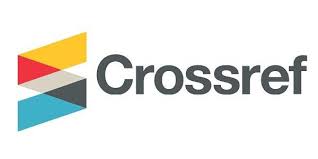PENGARUH WORK FAMILY CONFLICT TERHADAP TURNOVER INTENTION KARYAWAN CV. ABC DENGAN VARIABEL MEDIASI WORK ENGAGEMENT
DOI:
https://doi.org/10.25170/wpm.v17i1.7079Keywords:
work-family conflict, turnover intention, work engagement, CV. ABCAbstract
This study aims to analyze the influence of work-family conflict on turnover intention, with work engagement as a mediating variable among employees of CV. ABC, considering that the company's employee turnover rate has reached 18%, with an annual increase of 3% since 2021. Based on the background, conflicts between work and family demands can affect job performance and satisfaction, which in turn impacts the turnover rate. Using a quantitative approach with hypothesis testing, this study found that work-family conflict does not have a significant effect on work engagement, whereas work engagement significantly affects turnover intention, where lower levels of engagement increase employees' desire to leave. In addition, work-family conflict was found to have a significant effect on turnover intention, indicating that role conflict increases employees' intention to resign. However, no indirect effect was found between work-family conflict and turnover intention through work engagement as a mediator. These findings highlight the importance of human resource management strategies that focus on enhancing employee engagement to reduce turnover rates.
References
Andres, M. (2014). Distress, Support, and Relationship Satisfaction During Military-Induced Separations : A Longitudinal Study Among Spouses of Dutch Military Personnel. Psuchological Services, 22.
Armstrong, G. S., Atkin-Plunk, C. A., & Wells, J. (2015). The Relationship between Work-Family Conflict, Correctional Officer Job Stress, and Job Satisfaction. Criminal Justice and Behavior, 42.10, 1066-1082.
Astuti, D., & Parashakti, R. D. (2023). Peran Komitmen Organisasi pada Pengaruh Kepuasan Kerja terhadap. Revenue : Lentera Bisnis Manajemen, 1.
Bendersky, C., & Hays, N. A. (2012). Status Conflict in Groups. Research Gate. Cahyadi, I., Kuntary Ibrahim, I. D., Abdurrahman, & Al Fariqi, M. Z. (2021). Pengaruh Konflik pekerjaan Keluarga. SULTANIST: Jurnal Manajemen dan Keuangan, 9.
De Wit, F. R., Greer, L. L., & Jehn, K. A. (2012). The Paradox of Intragroup Conflict: A Meta-Analysis. Journal of Applied Psychology, 97, 360-390.
Folger, J. P., Poole, M. S., & Stutman, R. K. (2021). Working Through Conflict : Strategies For Relationship, Groups, dan Organizations. Routledge, 9.
Ghozali, I. (2018). Aplikasi Analisis Multivariate dengan program IBM SPSS. Badan Penerbit Universitas Diponegoro.
Greenhaus, J. H., & Beutell, N. J. (n.d.). Sources of conflict between work and family roles. Academy of Management Review, 10, 76-88.
Greenhaus, J., & Weer, C. (2014). Work-to-family conflict. Encyclopedia of quality of life and well-being research. 7244-7245.
Gull, N., Asghar, M., Bashir, M., Liu, X. L., & Xiong, Z. D. (2023). Doesafamily-supportive supervisor reduce the effect of work-family conflict on emotional exhaustion and turnover intentions? A moderated mediation model. International Journal of Conflict Management, 253-272.
Hasanah, S. F., & Ni'matuzahroh, N. (2017). Work Family Conflict Pada Single Parent. Jurnal Muara Ilmu Sos Humaniora, Dan Seni, 381-398.
Izham, M., & Mansor, A. N. (2016). Malaysian Principals’ Technology Leadership Practices and Curriculum Management. Creative Education.
Jamadin, N., Mohamad, S., Syarkawi, Z., & Noordin, F. (2015). Work - Family Conflict and Stress: Evidence from Malaysia. Journal of Economics, Business and Management.
Khikmawati, R. (2015). The Influence of Job Satisfaction and Work Environment on Salesperson Turnover Intention at Pt Cirdeka Indonesia Utama. Yogyakarta Branch.
Liftyawan, Septina, K., Hadi, F. S., & Agustina, T. S. (2020). Effects of Work Family Conflict Emotional Fatique and Job Stress on Performance. J Penelitian Ipteks, 5.1, 1-6.
Mihelic, K. K. (2014). Work-Family Conflict: A Review Of Antecedents And Outcomes. 18.
Mulyati, R. (2020). Kebermaknaan Kerja dan Keterikatan Kerja: Sebuah Tinjauan Metaanalisis. Psikologika Jurnal Pemikiran dan Penelitian Psikologi, 25, 29-44.
Muviana, L. (2022). Pengaruh Lingkungan Kerja Fisik Dan Lingkungan Kerja Nonfisik Terhadap Turnover Intention Dengan Kepuasan Kerja Sebagai Variabel Intervening. Jurnal Ilmu Manajemen, 10.
Purwayoga, P. V., Dharmanegara, I. B., & Yasa, P. N. (2019). Mediating Role of Work Engagement and Emotional Exhaustion in the Effect of Work-Family Conflict on Female Workers’ Turnover Intention. International Journal of Academic Research in Business and Social Sciences, 9, 176-190.
Sorenson, S. (2013). How Employee Engagement Drives Growth. Gallup Business Journal, 41-44.
Sow, Mouhamadou, Anthony, P., & berete, M. (2015). Relationship Between Affective Commitment and Turnover Intention ASmong US Healthcare Internal Auditors. The International Journal of Business & Management, 3.10, 43.
Sudarmanto, E., Tjahjana, D., Sri, S., & Bonaraja, P. (2021). Manajemen Konflik. KITA MENULIS.
Sugiyono. (2011). Metode Penelitian Pendidikan. Alfabeta, Bandung. Sugiyono. (2012). Metode Penelitian Bisnis. Alfabeta, Bandung.
Timms, C., Brough, P., O’Driscoll, M., Kalliath, T., Siu, O.-L., Sit , C., & Lo, D. (2015). Positive Pathways to Engaging Workers: Work–Family Enrichment As a Predictor of Work Engagement. Asia Pacific Journal of Human Resources.
Wang, F., & Wang, Z. C. (2024). Amediation moderation model between work–family conflict and turnover intention among public and private kindergarten school teachers in China. Journal of Organizational Change management, 37, 116-132.
Winata, Sukma, A., & Anisykurlilah, I. (2017). Analysis of Factors Affecting Manufacturing Companies in Indonesia Performing a Switching Auditor. Jurnal Dinamika Akuntansi, 9.1, 82-91.
Yucel, I., Sirin, M. S., & Bas, M. (2023). The mediating effect of work engagement on the relationship between work–family conflict and turnover intention and moderated mediating role of supervisor support during global pandemic. International Journal of Productivity and Performance Management, 72, 577-598.
Zhao, X. S., Lynch, J. G., & Chen, Q. M. (2010). Reconsidering Baron and Kenny: Myths and Truths About Mediation Analysis.
Zhang, M., Griffeth, R. W., & Fried, D. D. (2012). Emerald Article: Work-family conflict and individual consequences. Journal of Managerial Psychology, 27, 696-713.



